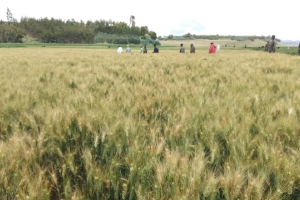
ADDIS ABABA– Documenting the nutritional values of the cultural cuisines and exploiting its medicinal role must be a priority area to enhance the nation’s tourism sector, experts in the area said.
Speaking to the Ethiopian Press Agency (EPA), Hotel Management Instructor and Researcher Habtu Teka, indicated that food tourism is untapped in Ethiopia while many countries are benefiting from the sector which is showing from 7 to 12% growth annually.
“Ethiopia is a big country with plenty of cultural cuisines across the country. Let alone the traditional equipment food is served with and how it is served, but its nutritional content coupled with its organic value and mouthwatering feature makes it preferable.”
However, little has been achieved when it comes to promoting the cultural cuisines on international websites and blogs. Moreover, there is a huge gap in organizing workshops, festivals as well as using short videos which best work to introduce the foods, as to him.
It is important to note that tourists travel globally just to have a taste of unique foods across countries. Accordingly, the nation still has a chance of gaining the socioeconomic benefit if it takes the promotion activities seriously, he emphasized
Though tourists never get tired of admiring Ethiopian cultural cuisines such as Doro wot, Shiro wot, injera, kitfo including the coffee ceremony, due to inadequate information they have, there are times where tourists packed food from their country.
Tour operators, on one hand, have a tendency of taking visitors to luxurious restaurants only. Thus, besides providing adequate information using various platforms, tour operators need to develop a habit of taking tourists to different areas where they could get a variety taste of cultural foods, he emphasized.
Thus, documenting the nutritional values of the cultural cuisines through Chief’s Association is vital. More importantly, the medicinal role of the cuisines must also be another area of focus, he stressed.
On the other hand, allowing the tourists firsthand experience in the cooking will have additional value to the promotion. To exemplify, he shared the experience in Semen Mountains where tourists are allowed to make injera.
Similarly in the Dorze area, tourists take part in preparation of false bananas. He indicated that participating tourists in the process not only makes their stay memorable but it would also encourage them to visit and explore more again.
Lessons need to be drawn from countries like Italy which prepared a food tourism map. China has also built a museum which showcases its tea ceremony. Ethiopia could also establish a food museum given its huge variety.
Deputy Director of Tourism Training Institute, Training Sector, Habtamu Kiberet, on his part mentioned that the nation has not given the necessary attention to food tourism.
Ethiopia has more than 80 nations and nationalities that have different cultural cuisines. Nonetheless, with the little attention given to marketing indigenous knowledge, the cultural foods were not able to generate income for the country.
Thus, he stressed the need to document the traditional cuisines without losing natural and nutritional content and transfer it to the coming generation. It is also pivotal to link it in the market so that tourists could easily get the ingredients/recipe and make it themselves.
The institute has so far documented traditional cuisines recipe of Sidama, Selite, Harari, Gamo, and Dire Dawa. Apart from promoting eco-tourism, it would allow the destinations where tourists could easily make the foods that are made in the area.
He added that efforts are being put to document Gambella, Benishangul, Afar, and Somali cultural cuisines.
BY BETELHEM BEDLU
THE ETHIOPIAN HERALD FRIDAY 26 APRIL 2024





